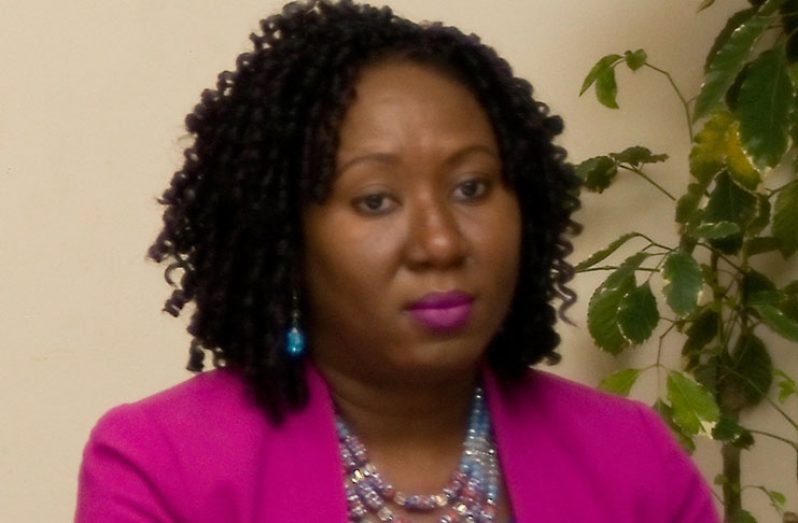…as Public Health Ministry rolls out 34-day campaign
THOUSANDS of boys, ages 9-16, over the next 30 days will be administered the HPV vaccine to help ward off the Human Papillomavirus (HPV).
This is the first time the Public Health Ministry is administering the vaccine to boys in Guyana through a nationwide programme. Public Health Minister Volda Lawrence made the announcement on Monday during a health forum at the Pegasus Hotel. In a public notice in the local newspapers on Tuesday, the Public Health Ministry said it was pleased to
collaborate with the Education Ministry to administer the vaccine for HPV to both boys and girls in schools. Originally, the ministry’s programme targeted girls nine-13; however, the age group was expanded to girls 9-14, and then 9-16 with the focus on girls.
It was noted that the 34-day nationwide campaign will be from the 11th February, 2019 to 13th March, 2019.
“This vaccine can be obtained at the schools from the health care worker, health centres, private hospitals and the Vaccination Centre of the Ministry of Public Health, Brickdam,” a section of the notice read.
The HPV is the most common sexually transmitted infection (STI), the Centers for Disease Control and Prevention states, explaining that the virus has the potential to develop genital warts and cancer, in particular cervical cancer, among women. In 71 countries across the world, health authorities are fighting back, utilising one of the most effective ways, that is, through the immunisation of young girls and boys with the HPV vaccine.

On the sideline of the opening ceremony for the Maternal and Child Health, Expanded Programme on Immunisation MCH-EPI Quarterly Review Meeting on Monday at the Pegasus Hotel, MCH Officer (ag) Oneka Scott said the Public Health Ministry took a decision to include boys in this round of the vaccination programme; this is in keeping with the World Health Organisation’s (WHO) programme, and the demands by parents, who have read about the effects of HPV and the importance of immunisation.
According to WHO, HPV, which is transmitted through sexual contact, causes cervical cancer which is the fourth most common cancer in women, with an estimated 266,000 deaths and 528,000 new cases in 2012. A large majority (around 85%) of the global burden occurs in the less developed regions, where it accounts for almost 12% of all female cancers.
WHO noted too that the virus also causes other types of anogenital cancer such as head and neck cancers, and genital warts in both men and women.
Dr. Scott told the Guyana Chronicle that the virus is also known for causing throat cancer among the adolescent population.
According to the MCH officer, the Public Health Ministry is targeting 2,500 children in each of the 10 administrative regions. At the end of the 34-day campaign, the ministry is hoping to have administered the vaccine to approximately 25, 000 boys and girls.
In October 2017, when the ministry re-introduced its Human Papilloma Virus (HPV) Vaccination campaign, approximately 36,000 girls were targeted.
While many parents are now endorsing the vaccination programme, Dr. Scott said there is still a push back from some. “There is a lot about HPV that is still sadly misdirected, and that is because Guyana has not caught up, we have not caught up with the other countries who are reaping the benefits, the other countries like Australia and Belize,” she posited.
Dr. Scott noted that while some countries are experiencing challenges procuring the vaccine (Gardasil) due to the hefty cost attached to it, Guyana has a financial structure in place which sees the campaign being heavily funded by the Guyana Government with assistance from the Global Alliance for Vaccines and Immunisation (GAVI) and PAHO/WHO.
“We have a financial structure that supports the purchase of vaccines. We don’t only have partner support through the World Health Organisaiton and GAVI, but our own Ministry of Finance has invested a lot, because we have seen the benefits, because we understand the challenges out there and we understand that it is more expensive to treat any type of disease related to HPV,” Dr. Scott explained.
The HPV vaccine was first introduced to the country between 2012 and 2014, with a donation of 21,600 doses.



.jpg)








